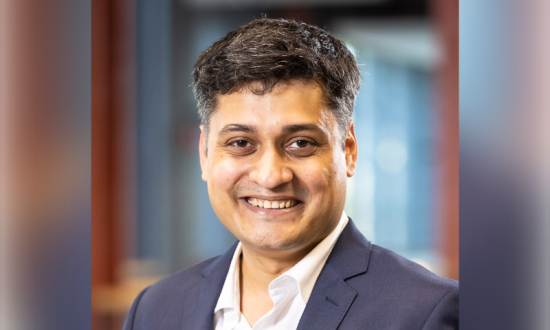Dr. Souvik Lal Chakraborty is an independent researcher and an Affiliate of Monash University, Australia. He is also a member of the organising committee of the Development Studies Association of Australia (DSAA). He is a former Lecturer of Human Geography at Monash University, Australia where he was also the interim Director of the Master of International Development Practice (MIDP) program. For the past decade, Souvik has worked as a student, researcher, and educator in India, Germany, and Australia. Souvik’s research and teaching focus on studies of nature-society relationships. More specifically his research interests include studies of the politics of mining and resource extraction, intersections between indigenous geographies and political ecology, contentious politics, and critical development studies.
The rapid advancement of Artificial Intelligence (AI) in recent times has not only opened up new possibilities across various sectors but has also emerged as a beacon of promise in international development practice. Countries worldwide, grappling with complex socio-economic and environmental challenges, from poverty alleviation to healthcare improvement, can potentially use AI as a transformative tool that can significantly enhance the effectiveness of development initiatives. This warrants a discussion on how academia is adapting to these technological advancements and the potential role of AI in shaping the future of education and international development.
In the education sector, AI-powered systems are on the verge of revolutionising learning experiences. Adaptive learning platforms, harnessing the capabilities of AI algorithms, are designed to tailor educational content to individual students’ needs. This ensures that each learner can progress at their own pace, fostering a personalised approach that has the potential to bridge educational gaps and provide quality learning opportunities to children in remote or disadvantaged areas.
A noteworthy example of the integration of AI into academia is the recent collaboration between Arizona State University and OpenAI. This strategic partnership is anticipated to pave the way for similar collaborations in the education space, promoting the responsible use of AI in educational practices. Such initiatives are crucial in promoting a more holistic approach toward AI, emphasizing the responsible and ethical use of this technology in shaping the future of education.
As a social scientist, I observe that a significant portion of the global population, spanning both the Global North and South, often finds itself at the receiving end of a technological shift largely orchestrated by computer and software engineers. The advancement of AI technology creates an environment that not only demands adaptation but encourages multidisciplinary education, where social scientists and engineers collaborate to address twenty-first-century problems.
The collaboration between governments, non-governmental organisations (NGOs), and the private sector is paramount to harnessing the full potential of AI in international development. Initiatives that promote knowledge transfer, skill development, and the co-creation of AI solutions can pave the way for sustainable and inclusive development practices. The responsible use of AI should be a cornerstone of these initiatives, ensuring that the benefits of AI are accessible to all segments of society.
As we delve deeper into the role of AI in academia, it becomes evident that responsible integration is not just a theoretical consideration; it is a crucial battleground where the trajectory of global development is significantly influenced. The responsible use of AI in education extends beyond personalisation of learning experiences. It encompasses the development of ethical frameworks, addressing issues such as data privacy and ensuring accessibility to AI-driven educational resources for all.
The transformative power of AI in academia also requires addressing the digital divide, both within and between countries. While technologically advanced regions may readily adopt AI-driven educational tools, there is a pressing need to ensure that those in less privileged areas are not left behind. This requires collaborative efforts on a global scale, involving governments, NGOs, and the private sector, to bridge the digital gap and ensure that the benefits of AI in education reach every corner of the world.
In conclusion, the integration of AI in international development practice holds immense promise for addressing global challenges across various sectors. From healthcare and education to environmental conservation and economic development, AI has the potential to revolutionise how we approach and solve complex problems. However, a thoughtful and inclusive approach is crucial to ensuring that the benefits of AI are accessible to all, contributing to a more equitable and sustainable world.
As we navigate this technological frontier, collaboration between various stakeholders will be key in unlocking the transformative power of AI for the betterment of humanity. The intersection of AI and academia is not just a meeting point of technologies; it is a battleground where responsible integration can shape the future of education and, consequently, the trajectory of global development. The responsible use of AI in academia becomes a cornerstone in crafting a future where technology serves as an equalizer, empowering individuals across the globe with knowledge and skills for a brighter tomorrow.




